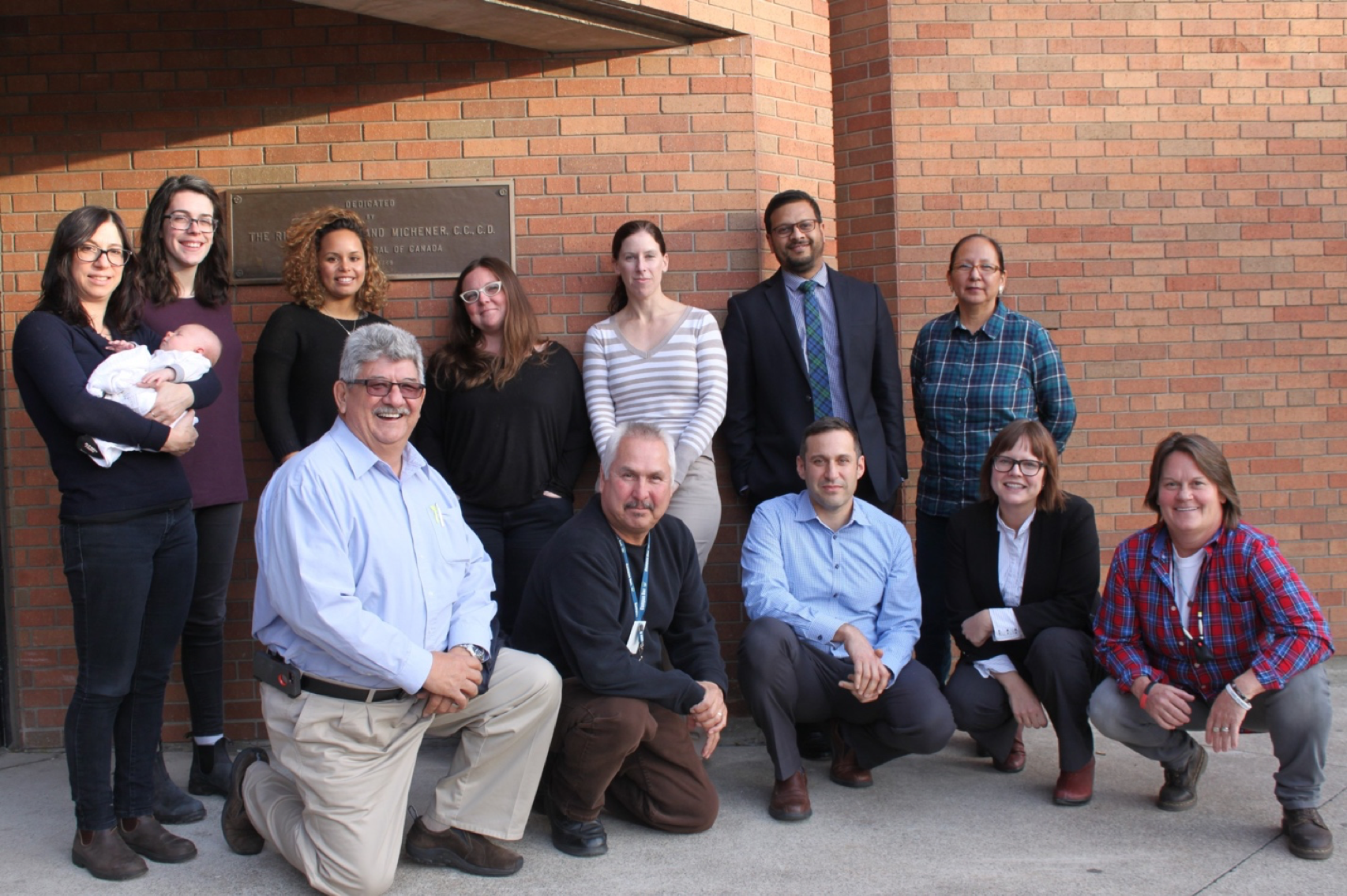
Windsor Law’s Truth and Reconciliation Steering Committee – Year in Review
The Truth and Reconciliation Steering Committee at Windsor Law ended its inaugural year with significant successes and much work left to be done.
The Committee recognized that we are in the very early stages of understanding Indigenous Legal Traditions; hence, the primary focus of this year has been relationship building and education. The Faculty’s Transnational Justice and Research Network (TLJN), the Windsor Yearbook of Access to Justice and Professor Valarie Waboose hosted a number of events focusing on missing and murdered Indigenous women, Indigenous approaches to education and Indigenous legal traditions featuring John Borrrows, Sarah Buhler, Bev Jacobs, and Deborah McGregor. Faculty and students also participated in the second annual Aboriginal Education Day on Walpole Island First Nation.
The Faculty has partnered with the Ministry of the Attorney General’s Debwewin Program to host two students on Walpole Island First Nation. This program funds students to work full-time throughout the summer on issues related to Indigenous participation and understanding of the jury system, as well as on issues identified by the Chief and Council. The Faculty is working on a draft set of Protocols for student placements for discussion with the Chief and staff.
In April 2016, Professor Valarie Waboose, in partnership with Associate Dean Smyth, organized a four-day intensive introduction to Anishinaabe Law for members of the law faculty, hosted by Walpole Island First Nation on Bkejwanong Territory. Instructors included Professor John Borrows, Professor Heidi Stark, Hannah Askew, as well as a core group of elders and teachers from the Bkejwanong First Nation. Through the generosity and guidance of our hosts, the camp was a transformative experience for all attendees. A subcommittee is developing plans to be able to offer the Camp for faculty and students in upcoming years.
The Committee is working on a number of additional initiatives. The Faculty is working with local First Nations on an Elder in Residence program that will be pursued in September 2016. For the first time this year an Elder, Susie Jones, will participate in the law school Convocation ceremony. The TRC Steering Committee is also working with new faculty member Jeffery Hewitt to develop the Faculty’s involvement in Indigenous Law and Art initiatives. Finally, we are working on ensuring that students’ introduction to law school during Orientation week clearly presents Indigenous law as a founding Canadian legal tradition and to introduce the colonial history and legacies of Windsor-Essex. Windsor Law is also increasing its course offerings in Indigenous Legal Traditions and Residential Schools, as well as improving our online information for Indigenous students.
The Committee is particularly grateful for the insights of Elder and Residential School Survivor Susie Jones from Walpole Island First Nation. She has kept our focus on the children, families and communities impacted by residential schools.
The Committee will reconstitute in September.
In October, the Faculty of Law at the University of Windsor formed a Truth and Reconciliation Commission (TRC) Steering Committee.
The Committee was launched pursuant to the Recommendations of the Truth and Reconciliation Commission’s Report, “Honouring the Truth, Reconciling for the Future”, which calls on law schools and many other social and sociolegal systems to both come to grips with the destructive role law and other systems have played in the lives of Indigenous and Métis communities, and to make significant reforms to improve our collective futures.
The Committee is co-chaired by Associate Dean Gemma Smyth, Professor Valarie Waboose and third-year Métis law student Alex Melanson. The Committee is comprised of students, professors, Russell Nahdee from the Aboriginal Education Centre, Acting Dean Chris Waters, as well as residential school survivor Susie Jones.
The Committee’s work will include curriculum reform recommendations, improved space for Indigenous and Métis students, and deepened community connections. The Committee aims to strike a balance between decisive action on a long-neglected part of Canada’s colonial history and a reflective and critically aware process required to sustain reconciliation over the next many decades.
